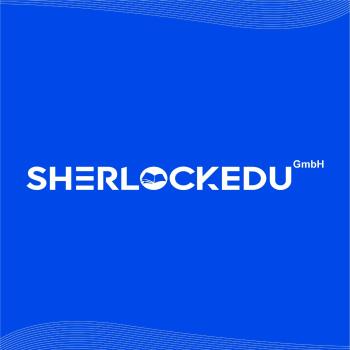
GAME BASED LEARNING / GAMIFICATION - BERLIN
The use of games allows students to fail, overcome, and persevere. Students are given a sense of agency—in games, they control the choices they make, and the more agency students have, the better students do.
Description
DAY 1
- Game-Based Learning
- Introducing Game-Based Learning
Why study gamification?
History of gamification
Categories and examples
Usability and accessibility of the game based methods
DAY 2
Gamification in context
Small, Safe Steps for Introducing Games to the Classroom
The Benefits of Constructionist Gaming
Game-Based Learning: Resource Roundup
Games to Teach Financial Literacy
DAY 3
Gamifying Your Class to Meet the Needs of All Learners
Teaching Empathy With Video Games
Gamification in Education
Using Gaming Principles to Engage Students
Interactive Fiction in the Classroom
DAY 4
Defining your own materials and presentations
Advantages and disadvantages game based usages in educational processes
A range wide of games that can be used covering different content and activities to support learning and communication
Responsible and safe use of game-based learning
DAY 5
Group sharing sessions to enable applying the social games in their classroom settings
Designing, planning and writing sample units of lesson
Learning objectives
- Increases learner engagement.
Makes eLearning fun and interactive.
Improves knowledge absorption and retention.
Gives learners the opportunity to see real world applications.
Enhances the overall learning experience for all age groups.
Positive attitude towards learning. There are many subjects that students are usually not fond of.
Improved Attention Span.
Reduced Disruptive Behaviour. ...
Improved Student Thought Process.
Better Communication Skills.
Methodology & assessment
Pedagogical Approaches: Teacher training courses typically employ various pedagogical approaches to model effective teaching practices. This may include lectures, interactive seminars, workshops, and hands-on teaching experiences.
Practical Teaching Experience: Practical teaching experience is a fundamental component of teacher training. Participants often have opportunities to observe experienced educators and engage in actual teaching in classrooms or educational settings. Feedback and guidance from mentors are essential during these experiences.
Collaborative Learning: Collaborative learning is often encouraged in teacher training courses. Participants may work in groups to develop teaching materials, lesson plans, and teaching strategies. Collaborative projects can promote the exchange of ideas and best practices.
Reflective Practice: Reflective practice is a crucial aspect of teacher training. Participants are encouraged to reflect on their teaching experiences, analyz
Materials, digital tools & other learning resources
Presentations,
Digital materials
Certification details
- Completion Certificate: Upon successfully completing a teacher training course, you will typically receive a completion certificate or diploma from the training provider or institution. This certificate acknowledges your participation and successful completion of the training.
- Course Duration: The duration of teacher training courses can vary widely. Some may be short-term workshops or seminars, while others may be more comprehensive and span several weeks or months. The certificate may indicate
Pricing, packages and other information
-
Price:400Euro
-
Course package content:
Course fee
-
Additional information:Description of the services and activities included in the course package (such as accommodation, meals, transport) or available at extra cost.
-
Cancellation & changes:
Participnats have the right to cancel in any emergency situation
-
Additional information:The options and conditions for change and cancellation, and the policy in case of unforeseen circumstances (force majeure).
Additional information
-
Language:English
-
Target audience ISCED:Primary education (ISCED 1)Lower secondary education (ISCED 2)Upper secondary education (ISCED 3)
-
Target audience type:TeacherHead Teacher / PrincipalICT Coordinator
-
Learning time:25 hours or more
Past sessions
More courses by this organiser

HAPPY SCHOOL- A PSYCHOLOGICAL APPROACH for WELL BEING of STUDENTS-BUDAPEST

GUIDING STARS: COACHING AND CAREER PLANNING FOR STUDENT SUCCESS-BERLIN


